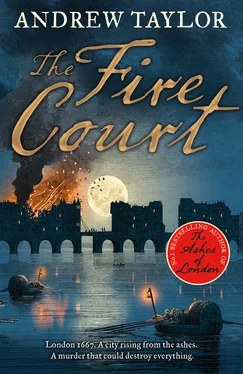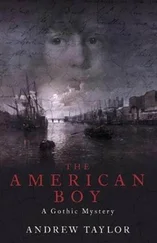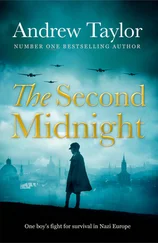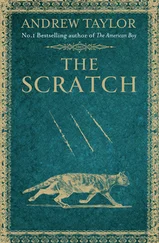He kept his eyes fixed on the cloak, and the rhythm of his walking lulled his mind until he almost forgot why he was here. By the Temple, Rachel hesitated, turning towards the roadway with its sluggish currents of vehicles and animals. She looked down at the paper in her hand. A painted coach lumbered to a halt on the opposite side of the road. At that moment, a brewer’s dray, coming from the other direction and laden with barrels, drew up beside it. Between them, they blocked the street.
Rachel slipped among the traffic and threaded her way across the street.
The brewer’s men were unloading the dray outside the Devil Tavern. A barrel broke free and crashed into the roadway. The impact shattered the staves on one side. Beer spurted into the street. Two beggars ran whooping towards the growing puddle. They crouched and lapped like dogs. The traffic came to a complete halt, jammed solid by its own weight pressing from either side.
A sign, he thought, a sign from God. He has parted this river of traffic for me just as it had pleased Him to part the Red Sea before Moses and the Chosen People.
He walked across the street, his eyes fixed on Rachel’s cloak. She turned to the left in the shadow of the square tower of St Dunstan-in-the-West.
Why was she leading him such a merry dance? Suspicion writhed within him. Had the serpent tempted her? Had she succumbed to the devil’s wiles?
An alley ran past the west side of the church to a line of iron railings with a gateway in the middle. Beside it, a porter’s lodge guarded the entrance to a cramped court. Men were milling around the doorway of a stone-faced building with high, pointed windows.
Rachel was there too, looking once again at the paper in her hand. She passed through the doorway. He followed, but the crowd held him back.
‘By your leave, sirs, by your leave,’ he cried. ‘Pray, sirs, by your leave.’
‘Hush, moderate your voice,’ hissed a plump clerk dressed in black. ‘Stand back, the judges are coming through.’
He stared stupidly at the clerk. ‘The judges?’
‘The Fire Court, of course. The judges are sitting this afternoon.’
Three gentlemen came in procession, attended by their clerks and servants. They were conducted through the archway.
He pressed after them. The doorway led to a passage. At the other end of it a second doorway gave on to a larger courtyard, irregular in shape. Beyond it was a garden, a green square among the soot-stained buildings.
Was that Rachel over there by the garden?
He called her name. His voice was thin and reedy, as it was in dreams. She did not hear him, though two men in black gowns stared curiously at him.
How dared she ignore him? What was this place full of men? Why had she not told him she was coming here? Surely, please God, she did not intend to betray him?
On the first floor of the building to the right of the garden, a tall man stood at one of the nearer windows, looking down on the court below. The panes of glass reduced him to little more than a shadow. Rachel turned into a doorway at the nearer end of a building to the right of the garden, next to a fire-damaged ruin.
His breath heaved in his chest. He had the strangest feeling that the man had seen Rachel, and perhaps himself as well.
The man had gone. This was Rachel’s lover. He had been watching for her, and now she was come.
His own duty was plain. He crossed the court to the doorway. The door was ajar. On the wall to one side, sheltered by the overhang of the porch, was a painted board. White letters marched, or rather staggered, across a black background:
XIV
6 Mr Harrison
5 Mr Moran
4 Mr Gorvin
3 Mr Gromwell
2 Mr Drury
1 Mr Bews
Distracted, he frowned. Taken as a whole, the board was an offence to a man’s finer feelings and displeasing to God. The letters varied in size, and their spacing was irregular. In particular, the lettering of Mr Gromwell’s name had been quite barbarously executed. It was clearly a later addition, obliterating the original name that had been there. A trickle of paint trailed from the final ‘l’ of Gromwell. The sign-painter had tried ineffectually to brush it away, probably with his finger, and had succeeded only in leaving the corpse of a small insect attached to it.
Perhaps, he thought, fumbling in his pocket, temporarily diverted from Rachel, a man might scrape away the worst of the drip with the blade of a pocket knife. If only—
He heard sounds within. And a man’s voice. Then a second voice – a woman’s.
Oh, Rachel, how could you?
He pushed the door wide and crossed the threshold. Two doors faced each other across a small lobby. At the back, a staircase rose into the shadows.
He listened, but heard only silence. He caught sight of something gleaming on the second step of the stairs. He stepped closer and peered at it.
A speck of damp mud. The moisture caught the light from the open door behind him.
‘Rachel?’ he called.
There was no reply. His mind conjured up a vision of her in a man’s chamber, her skirts thrown up, making the two-backed beast with him. He shook his head violently, trying to shake the foul images out of it.
He climbed the stairs. On the next landing, two more doors faced each other, number three on the right and number four on the left. Another, smaller door had been squeezed into the space between the staircase and the back of the landing.
Number three. Three was a number of great importance. There were three doors and three Christian virtues, Faith, Hope and Charity. Man has three enemies, the world, the flesh and the devil. Mr Gromwell’s number was three, whoever Gromwell was.
In God’s creation, everything had meaning, nothing was by chance, all was pre-ordained, even the insect trapped in the paint, placed there to show him the way.
He raised the latch. The door swung slowly backwards, revealing a square sitting room. Late afternoon sunshine filled the chamber, and for a moment he was transfixed by the loveliness of the light.
A window to God …
He blinked, and loveliness became mere sunshine. The light caught on a picture in a carved gilt frame, which hung over the mantelpiece. He stared at it, at the women it portrayed, who were engaged in a scene of such wickedness that it took his breath away. He forced himself to look away and the rest of the room came slowly to his attention: a press of blackened oak; chair and stools; a richly coloured carpet; a table on which were papers, wine, sweetmeats and two glasses; and a couch strewn with velvet cushions the colour of leaves in spring.
And on the couch—
Inside his belly, the serpent twisted and sunk its teeth.
Something did not fit, something was wrong—
The woman lay sleeping on the couch, her head turned away from him. Her hair was loose – dark ringlets draped over white skin. Her silk gown was designed to reveal her breasts rather than conceal them. The gown was yellow, and also red in places.
She had kicked off her shoes before falling asleep, and they lay beside the couch. They were silly, feminine things with high heels and silver buckles. The hem of the gown had risen almost to the knees, revealing a froth of lace beneath. One hand lay carelessly on her bosom. She wore a ring with a sapphire.
But she wasn’t Rachel. She didn’t resemble Rachel in the slightest. She was older, for a start, thinner, smaller, and less well-favoured.
His mind whirred, useless as a child’s spinning top. He had a sudden, shameful urge to touch the woman’s breast.
‘Mistress,’ he said. ‘Mistress? Are you unwell?’
She did not reply.
‘Mistress,’ he said sharply, angry with himself as well as with her for leading him into temptation. ‘Are you drunk? Wake up.’
Читать дальше












